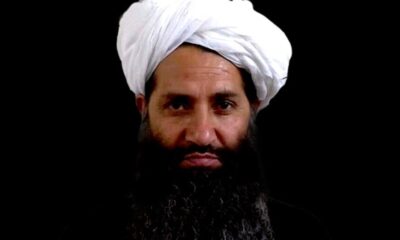Regional
Sri Lankans elect Marxist-leaning Dissanayake as president to fix economy
About 75% of the 17 million eligible voters cast their ballots, according to the election commission.
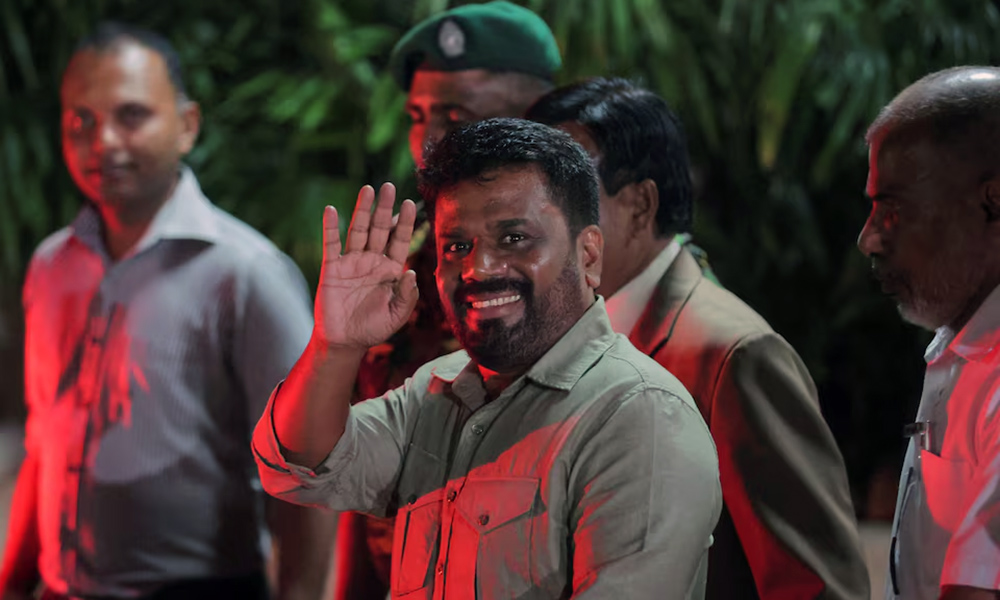
Sri Lankans elected Marxist-leaning Anura Kumara Dissanayake as new president on Sunday, putting faith in his pledge to fight corruption and bolster a fragile economic recovery following the South Asian nation’s worst financial crisis in decades, Reuters reported.
Dissanayake, 55, who does not possess political lineage like some of his rivals in the presidential election, led from start to finish during the counting of votes, knocking out incumbent President Ranil Wickremesinghe and opposition leader Sajith Premadasa.
“We believe that we can turn this country around, we can build a stable government… and move forward. For me this is not a position, it is a responsibility,” Dissanayake told reporters after his victory which was confirmed after a second tally of votes.
The election was a referendum on Wickremesinghe, who led the heavily indebted nation’s fragile economic recovery from an economic meltdown but the austerity measures that were key to this recovery angered voters. He finished third with 17% of the votes, read the report.
“Mr. President, here I handover to you with much love, the dear child called Sri Lanka, whom we both love very dearly,” Wickremesinghe, 75, said in a statement conceding defeat.
Dissanayake polled 5.6 million or 42.3% of the votes, a massive boost to the 3% he managed in the last presidential election in 2019. Premadasa was second at 32.8%.
It was the first time in the Indian Ocean island’s history that the presidential race was decided by a second tally of votes after the top two candidates failed to win the mandatory 50% of votes to be declared winner.
Under the electoral system, voters cast three preferential votes for their chosen candidates. If no candidate wins 50% in the first count, a second tally determines the winner between the top two candidates, using the preferential votes cast, Reuters reported.
About 75% of the 17 million eligible voters cast their ballots, according to the election commission.
This was the country’s first election since its economy buckled in 2022 under a severe foreign exchange shortage, leaving it unable to pay for imports of essentials including fuel, medicine and cooking gas. Protests forced then-President Gotabaya Rajapaksa to flee and later resign.
Dissanayake presented himself as the candidate of change for those reeling under austerity measures linked to a $2.9 billion International Monetary Fund bailout, promising to dissolve parliament within 45 days of taking office for a fresh mandate for his policies in general elections.
“The election result clearly shows the uprising that we witnessed in 2022 is not over,” said Pradeep Peiris, a political scientist at the University of Colombo.
“People have voted in line with those aspirations to have different political practices and political institutions. AKD (as Dissanayake is popularly known) reflects these aspirations and people have rallied around him.”
Dissanayake has worried investors with a manifesto pledging to slash taxes, which could impact IMF fiscal targets, and a $25 billion debt rework. But during campaigning, he took a more conciliatory approach, saying all changes would be undertaken in consultation with the IMF and that he was committed to ensuring repayment of debt, read the report.
Buttressed by the IMF deal, Sri Lanka’s economy has managed a tentative recovery. It is expected to grow this year for the first time in three years and inflation has moderated to 0.5% from a crisis peak of 70%.
But the continued high cost of living was a critical issue for many voters as millions remain mired in poverty and many pinned hopes of a better future on the next leader.
Dissanayake ran as a candidate for the National People’s Power alliance, which includes his Marxist-leaning Janatha Vimukthi Peremuna party.
Although JVP has just three seats in parliament, Dissanayake’s promises of tough anti-corruption measures and more policies to support the poor boosted his popularity.
He will have to ensure Sri Lanka sticks with the IMF programme until 2027 to get its economy on a stable growth path, reassure markets, repay debt, attract investors and help a quarter of its people out of poverty.
“Root cause for the downfall of this country is bad management. We have a strong feeling if we have a good manager to rule this country… we can be successful in future,” said Janak Dias, 55, a real estate businessmen.
Regional
Iran ready for indirect talks with US, Khamenei aide says
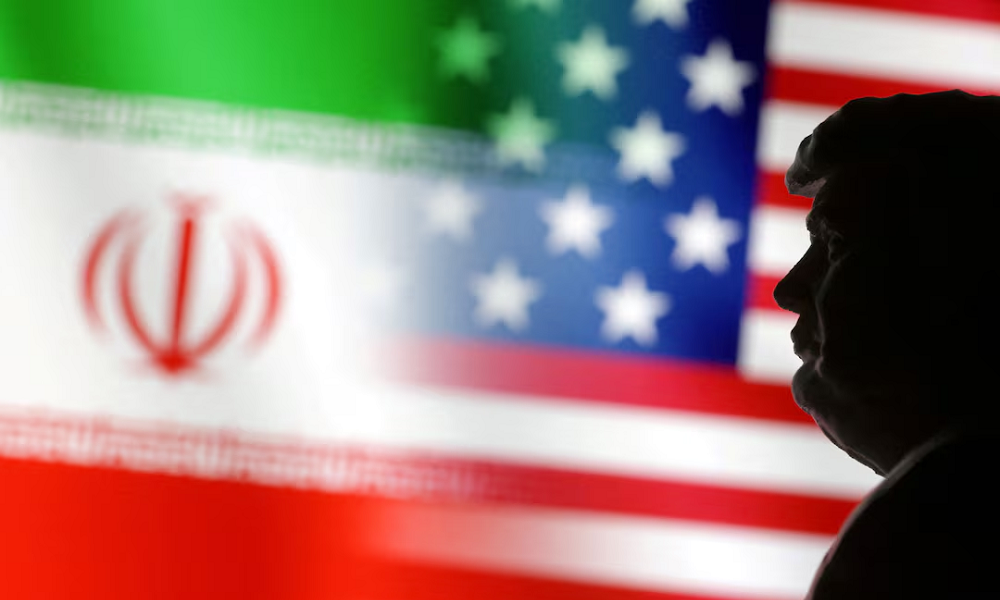
Kamal Kharrazi, an adviser to Iran’s supreme leader, said on Thursday Tehran has not closed all doors to resolve its disputes with the United States and is ready for indirect negotiations with Washington.
Tehran has so far rebuffed U.S. President Donald Trump’s warning it to make a deal or face military consequences. Supreme Leader Ayatollah Ali Khamenei called the message deceptive and Foreign Minister Abbas Araqchi said talks are impossible unless Washington changes its “maximum pressure” policy.
“The Islamic Republic has not closed all doors. It is ready for indirect negotiations with the United States in order to evaluate the other party, state its own conditions and make the appropriate decision,” Kharrazi said, according to the semi-official Iranian Students News Agency.
Iran is meant to soon reply to Trump’s letter, with Araqchi saying last week that Tehran would take into consideration both Trump’s threat and opportunities in its response.
In his first 2017-21 term, Trump withdrew the U.S. from a 2015 deal between Iran and world powers that placed strict limits on Tehran’s disputed nuclear activities in exchange for sanctions relief.
After Trump pulled out in 2018 and reimposed sweeping U.S. sanctions, the Islamic Republic breached and has since far surpassed those limits in its escalating programme of uranium enrichment.
Western powers accuse Iran of having an clandestine agenda to develop nuclear weapons capability by enriching uranium to a high level of fissile purity, above what they say is justifiable for a civilian atomic energy programme.
(Reuters)
Regional
Pakistan, China in talks about security for Chinese nationals
Chinese nationals have been targeted by separatist militants who believe Beijing is helping Pakistan exploit minerals in Balochistan
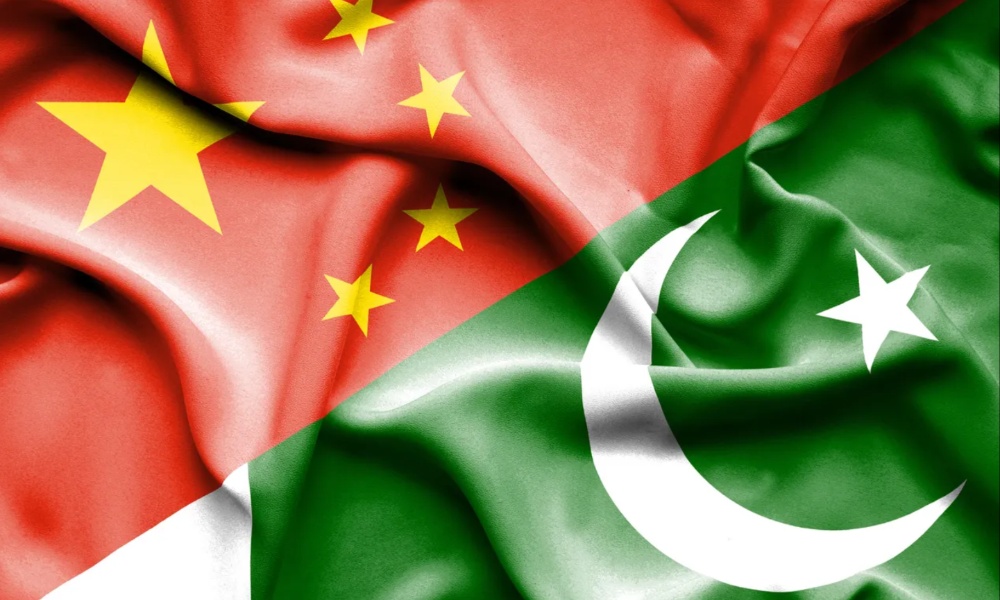
Pakistan and China’s discussions about security measures to protect Chinese nationals working in the South Asian country are a work in progress, Islamabad’s ambassador to Beijing said on Wednesday.
Chinese nationals have been in the crosshairs of separatist militants who believe Beijing is helping Pakistan exploit minerals in the underdeveloped southwestern province of Balochistan, where China has a strategic port and mining interests, Reuters reported.
It is Pakistan’s “national responsibility” and the country is “doing everything possible”, Ambassador Khalil Hashmi told reporters at the sidelines of the Boao Forum in China’s Hainan province.
“I think our two countries work very closely in terms of information sharing, in terms of developing the standard operating procedures” to ensure Chinese nationals working in Pakistan are safe, he said.
“We keep our Chinese friends informed of the steps that we are taking, so it’s a work in progress.”
Beijing has been pushing Pakistan to allow its own security staff to provide protection to thousands of Chinese citizens working there, frustrated by the string of attacks on its citizens.
The push came after a bombing at the Karachi airport last October killed two Chinese engineers who were returning there to work at a power plant.
Hashmi said those talks are ongoing, with a high degree of trust between both countries.
“It’s a complex security environment,” he said, “We have the capability to resolve, to counter and combat and defeat these terrorist forces.”
Regional
Egypt makes new proposal to restore Gaza truce as Israeli strikes kill 65
Palestinian officials on Sunday put the number of dead from nearly 18 months of conflict at over 50,000, read the report.
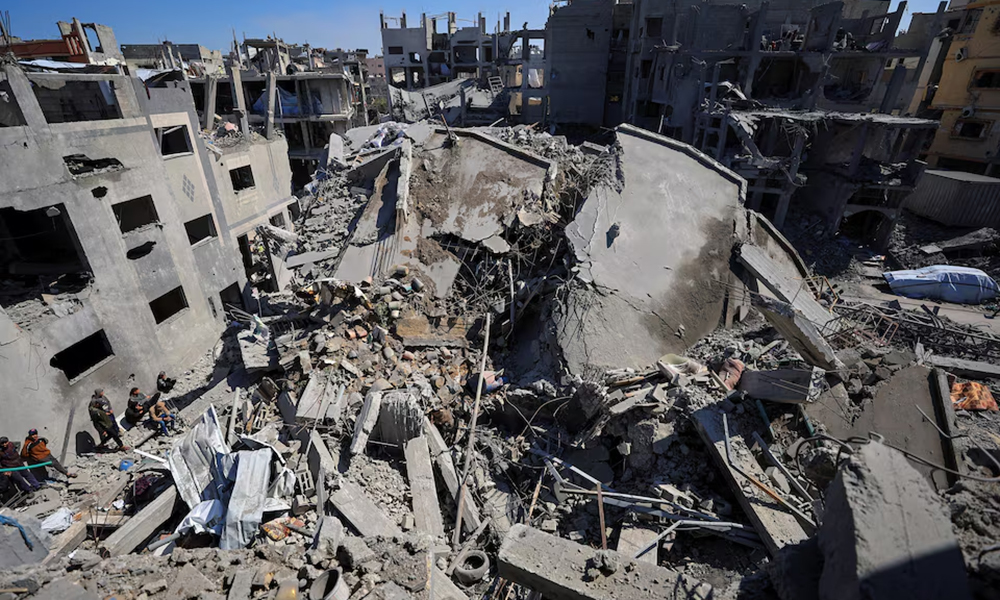
Egypt has floated a new proposal aimed at restoring the Gaza ceasefire deal, security sources told Reuters on Monday, as Palestinian health authorities said Israeli strikes had killed at least 65 people in the enclave in the previous 24 hours, Reuters reported.
The proposal, made last week, follows an escalation in violence after Israel resumed air and ground operations against Hamas militants on March 18, ending a two-month period of relative calm after 15 months of war.
Gaza health officials said Israeli airstrikes and shelling have killed nearly 700 Palestinians since then, including at least 400 women and children.
Among those killed on Monday were two local journalists, Mohammad Mansour and Hussam Shabat, medics said. The Palestinian Journalist Syndicate said at least 206 journalists have been killed by Israeli fire in Gaza since early October 2023, when the conflict erupted. There was no immediate Israeli comment.
Islamist group Hamas said several of its senior political and security officials had also been killed, read the report.
Later on Monday, the Israeli military said it had intercepted a missile launched from Yemen before it crossed into Israel. Warning sirens had sounded in Jerusalem, Tel Aviv and other areas. Iran-aligned Houthi forces in Yemen have at times fired missiles at Israel in support of Hamas fighters.
The Egyptian plan calls for Hamas to release five Israeli hostages each week, with Israel implementing the second phase of the ceasefire after the first week, two security sources said.
Hamas is still holding 59 hostages, with 24 thought to be still alive, among the more than 250 it seized in its October 7, 2023 cross-border attack on Israel. Most of the rest have been freed, or their bodies handed over, in negotiated exchanges.
Both the U.S. and Hamas have agreed to the proposal, the security sources said, but Israel has not yet responded, Reuters reported.
A Hamas official did not confirm the proposed offer, but told Reuters that “several proposals are being discussed with the mediators to bridge the gap and to resume negotiations to reach common ground that would pave the way to start the second phase of the agreement”.
The sources said the Egyptian proposal includes a timeline for a full Israeli military withdrawal from Gaza, backed by U.S. guarantees, in exchange for the release of remaining hostages.
Hamas has accused Israel of breaking the terms of the January ceasefire agreement but has said it is willing to negotiate a renewed truce and was studying proposals from U.S. President Donald Trump’s special envoy, Steve Witkoff.
Israel says it resumed its military operations to force Hamas to release the remaining hostages it is holding in Gaza.
On Monday, Hamas released a video it said showed hostages Elkana Bohbot, 35, and Yosef Haim-Ohana, 24, who were both abducted from the Nova music festival site on October 7.
Israel says it does its best to reduce harm to civilians and has questioned the death toll provided by health authorities in the Hamas-run enclave.
Palestinian officials on Sunday put the number of dead from nearly 18 months of conflict at over 50,000, read the report.
Israel launched its offensive in Gaza after Hamas fighters stormed southern Israel on October 7, 2023, killing 1,200 people, mostly civilians, according to Israeli tallies.
In Gaza’s southernmost city Rafah, the municipality said thousands of people were stuck inside the Tel Al-Sultan district where some Israeli military forces had entered, with families trapped among the ruins, with no water, food, or medicine.
The Palestinian Civil Emergency Service said 50,000 residents remained cornered in Rafah, which abuts the border with Egypt.
The Israeli military said troops had encircled Tel Al-Sultan to dismantle “terror infrastructure sites and eliminate terrorists in the area”.
A United Nations spokesperson said on Monday it would reduce its footprint in Gaza after five staff members of its Palestinian relief agency UNRWA were killed in the renewed conflict, but remains committed to providing aid to civilians.
Separately, UNRWA said 124,000 Palestinians have been displaced in Gaza in recent days.
“Families carry what little they have with no shelter, no safety, and nowhere left to go. The Israeli authorities have cut off all aid. Food is scarce and prices are soaring. This is a humanitarian catastrophe. The siege must end,” UNRWA said on X.
-

 International Sports4 days ago
International Sports4 days agoRCB bring fireworks to opening night of IPL 2025
-
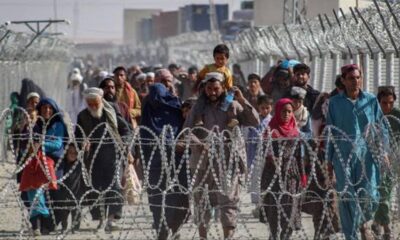
 Latest News4 days ago
Latest News4 days agoTorkham border reopens for pedestrians
-
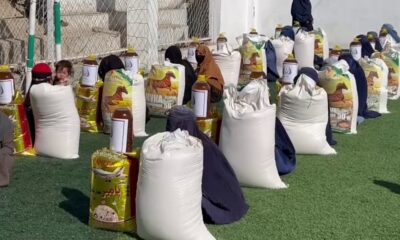
 Latest News4 days ago
Latest News4 days agoBayat Foundation distributes food aid to dozens of needy families in Balkh
-

 International Sports3 days ago
International Sports3 days agoIPL 2025: Sunrisers on a batting rampage; triumph over Rajasthan Royals
-
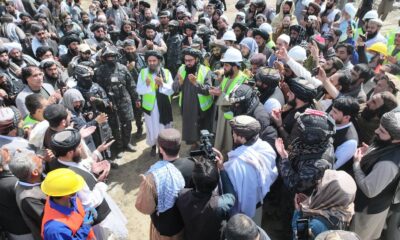
 Business4 days ago
Business4 days agoDeputy PM inaugurates launch of Arghandi Transport Terminal Project in Kabul Province
-

 Latest News3 days ago
Latest News3 days agoEU says girls’ education crucial for Afghanistan’s long-term prosperity
-
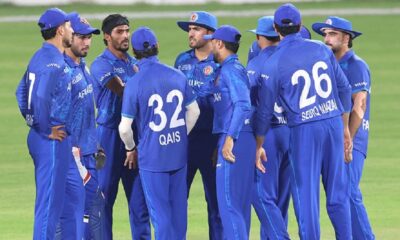
 Sport3 days ago
Sport3 days agoACB names Afghanistan A squad for tri-nation series
-
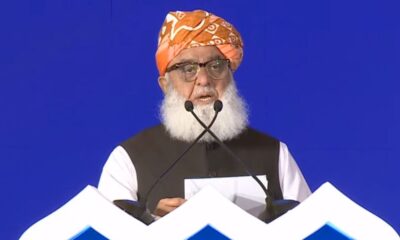
 Latest News4 days ago
Latest News4 days agoPakistan’s mistakes played significant role in rise of terrorism: Maulana Fazl-ur-Rehman










